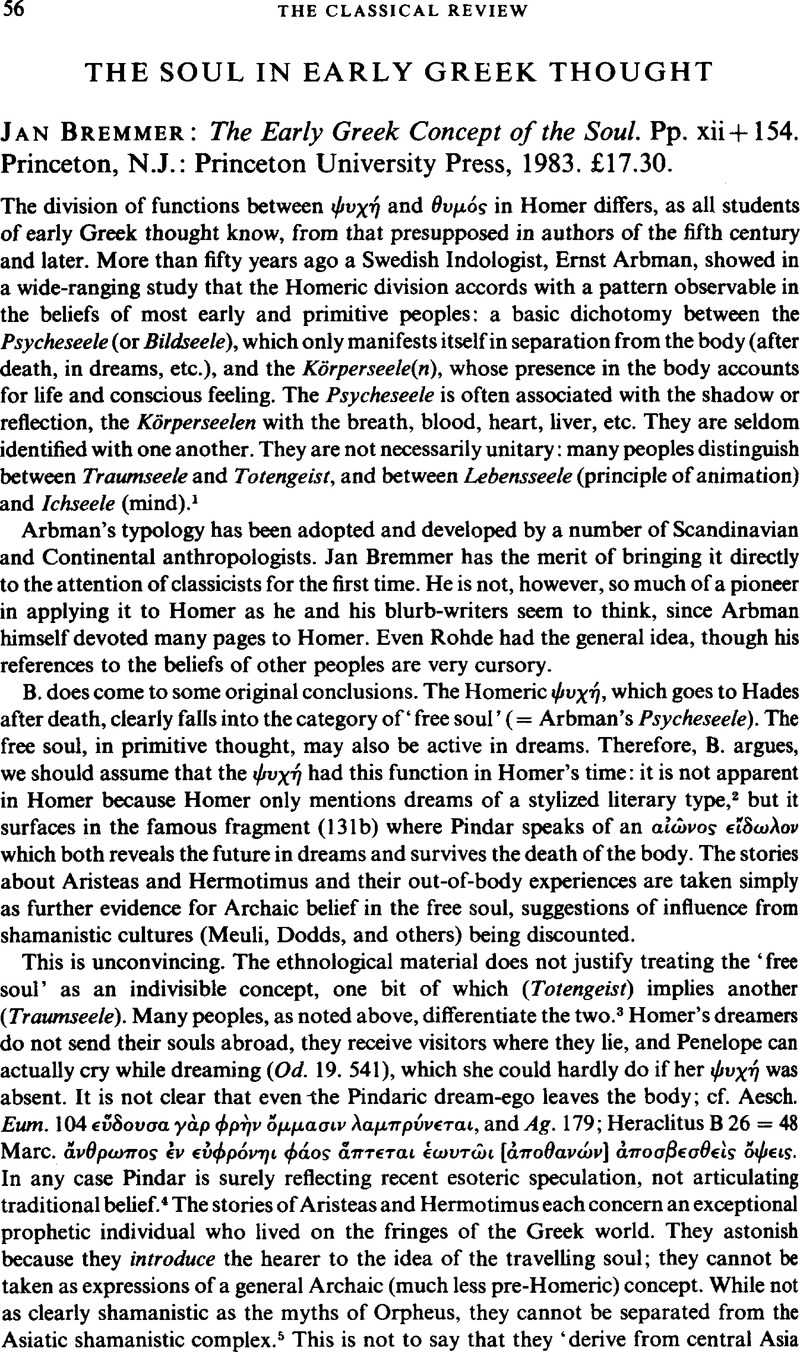No CrossRef data available.
Article contents
The Soul in Early Greek Thought - Jan Bremmer: The Early Greek Concept of the Soul. Pp. xii + 154. Princeton, N.J.: Princeton University Press, 1983. £17.30.
Published online by Cambridge University Press: 16 February 2009
Abstract

- Type
- Reviews
- Information
- Copyright
- Copyright © The Classical Association 1985
References
1 Le Monde oriental 20 (1926), 85–222 and 21 (1927), 1–185 (cited below as i and ii)Google Scholar; see also Láng, J., Acta ethnographica acad. scient. Hungaricae 22 (1973), 171–197.Google Scholar
2 Not quite true; see Il. 22. 199–201.
3 Arbman, i. 117–21.
4 Cf. my Early Greek Philosophy and the Orient (1971), 148 and 183. De Victu 4. 86 is of course not ‘Hippocrates’ (Bremmer 51, 53) but a fourth–century writer.
5 Cf. Burkert, W., Lore and Science in Ancient Pythagoreanism (1972), 162–165.Google Scholar
6 Similarly Láng 189, who identifies the older name asεἴδωλον.
7 See also Onians, R. B., The Origins of European Thought (1951), 93–95 and 119 f.Google Scholar
8 Like fumus. In later Sanskrit dhūmáh is also used of mists and vapours, meteors, and belches.
9 See Furley, D. J., BICS 3 (1956), 7, 9, 11Google Scholar; Fränkel, H., Early Greek Poetry and Philosophy (1975), 605 f.Google Scholar; Jarcho, V. N., Philologus 112 (1968), 149 f.CrossRefGoogle Scholar; Adkins, A. W. H., From the Many to the One (1970), 62–66Google Scholar; Snell, B., Die Entdeckung des Geistes, 4th ed. (1975), 25 f., 297Google Scholar; in most detail Claus, D.B., Toward the Soul (1981).Google Scholar


